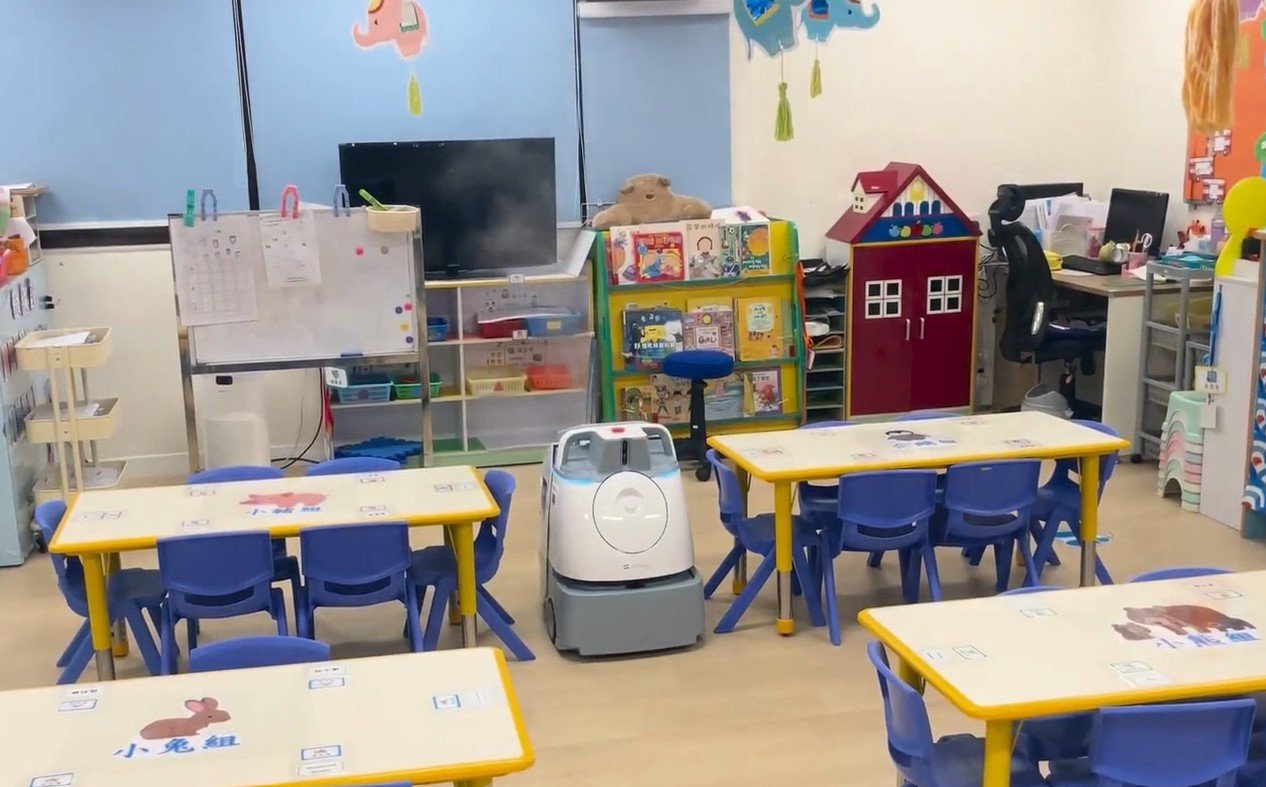The Silent Spread of a Superbug – and How Consistent Small Actions Can Stop It 超級病菌的無聲擴散——如何通過持續的小行動阻止它
It begins with a single spore.
In 2016, a New York hospital isolated a mysterious fungus from a patient’s ear. Within seven years, this organism – Candida auris – has become what the CDC calls an “urgent antimicrobial resistance threat,” with U.S. cases surging 81% in 2023 alone.
But here’s what most miss: This isn’t just a hospital problem.
C. auris thrives on overlooked surfaces—elevator buttons, school desks, hotel linens—resisting standard cleaners and spreading silently. The solution? Not dramatic overhauls, but small, consistent improvements in disinfection protocols.
At Avalon Steritech, we’ve developed The Hygiene Flywheel, a three-layered defense strategy combining Nanocyn®, Evicate-Pro®, and Whiz Gambit to disrupt microbial survival cycles. Schools, hotels, and elderly homes that implement these micro-actions are creating macro-protection against outbreaks.
Preventing Seasonal Influenza: The Critical Role of Environmental Hygiene and Disinfection 防止季節性流感:環境衛生與消毒的關鍵作用
Seasonal influenza is more than just a cold—it can lead to serious complications, especially for vulnerable groups. Learn how you can protect yourself and your loved ones by maintaining good personal hygiene, practicing proper disinfection, and conducting environmental hygiene assessment. Together, we can reduce the spread of influenza and safeguard our community's health.
RSV Surge in Hong Kong: Highlighting the Crucial Role of Disinfection and Hygiene
The recent cancellation of singer Jackie Cheung's concert due to Respiratory Syncytial Virus (RSV) infection underscores the severe threat posed by this virus, particularly to the elderly and those with chronic conditions. Professor Ivan Hung from the University of Hong Kong warns that RSV cases have surged by over 70% since April, with the peak expected in July and August. This article explores the nature of RSV, its impact on vulnerable populations, seasonal challenges, and the critical importance of disinfection and hygiene measures.
Combating MRSA Outbreaks in Hong Kong Hospitals: Protecting Infants and Implementing Innovative Prevention Strategies
The recent outbreaks of Methicillin-resistant Staphylococcus aureus (MRSA) among infants in Hong Kong hospitals have raised concerns among healthcare professionals and parents alike. These outbreaks highlight the need for heightened vigilance and effective infection control measures in healthcare facilities. To combat the spread of MRSA, hospitals are implementing rigorous infection control measures, including enhanced screening, cleaning and disinfection, contact transmission prevention protocols, and risk assessment. The role of smart robotics like Whiz Gambit, premium hospital-grade disinfectants like Nanocyn, and indoor environmental hygiene assessment is also emphasized in reducing MRSA transmission, particularly in high-risk populations.
Transforming School Sanitation: A Whiz Gambit Case Study Triumph with HKVNS Alumni Association Kindergarten
In a groundbreaking case study at HKVNS Alumni Association Kindergarten (KCC) in October 2023, Whiz Gambit, Avalon Steritech's advanced cleaning solution, demonstrated its unparalleled impact on school sanitation. By significantly reducing surface contaminants and creating a pristine learning environment, Whiz Gambit has set a new benchmark for student health and safety.
Cleanliness vs. Hygiene: Understanding the Difference and Importance in Preventing the Spread of Diseases
The COVID-19 pandemic has highlighted the importance of cleanliness and hygiene in preventing the spread of diseases. However, many people still confuse these two terms, leading to inadequate practices. Cleanliness focuses on the physical appearance of surfaces, while hygiene is driven by practices and measures taken to maintain health and prevent disease spread, even when a surface appears clean. Understanding the factors that affect the survival of pathogens on surfaces is crucial in developing effective cleaning protocols.
The Science of Cleanliness: Why ATP Testing is the Preferred Method for Ensuring Hygiene
While a visually clean environment may give the impression of being hygienic, it does not necessarily guarantee actual cleanliness. To ensure a truly clean and safe environment, it is essential to adopt a scientific approach to measure surface cleanliness. Among various methods, ATP bioluminescence testing stands out as the preferred choice for its speed, reliability, and cost-effectiveness.








